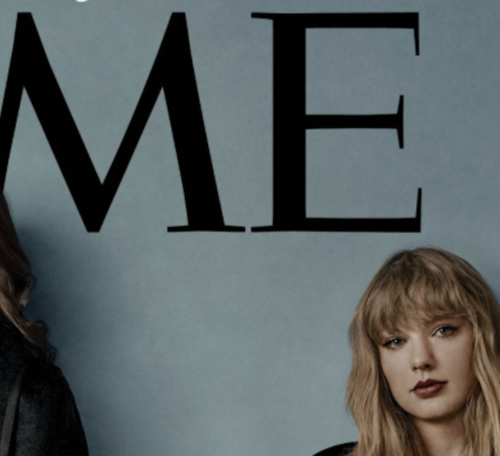No one is denying that Taylor Swift is a member of the countless, still unknown cases of sexual assault that have occurred in the entertainment industry. Or that her story and trauma isn’t just as valid as any other woman’s. What can be refuted, however, is whether that story really deserves to be represented–among all the other underrepresented ones–on the cover of this year’s Person of the Year issue for TIME magazine. Perched to the right with that very specific moody look she’s adopted ever since promotion for “Look What You Made Me Do” and Reputation began, Swift stands out not only for her skin tone (Ashley Judd’s Sicilian blood offsets her standard-issue whiteness), but also for seeming only to detract attention from a movement that has affected thousands of voiceless women. Emphasis on the voiceless part. Swift is nothing if not the only other person in the country with a bigger mouthpiece for being heard than Donald Trump (incidentally, second runner-up for the cover choice this year)–a man she has never publicly stood against as she knows much of her bread and butter audience still lies in the South and the Midwest.
Elsewhere on the cover, you’ll see Susan Fowler, the corporate Caucasian of the group who made headlines this year for calling out Uber’s workplace environment of hostility, harassment and unbridled sexism in a blog post that single-handedly took down CEO Travis Kalanick. Then there’s Isabel Pascual, the down in the trenches strawberry picker who protested against abusive conduct with many others this year in California. Which brings us to our other California cover star, Sacramento-based lobbyist Adama Iwu. Even if Lady Bird accurately doesn’t depict Sacramento as that “sexy” of a place, perhaps this is precisely why such rampant sexual harassment takes place there. That being said, it was Iwu’s letter, signed by fellow lobbyists and legislators who have suffered the same, that set the political world further ablaze–this time at a hyper-local level.
If you’re starting to get a sense of a “which one of these is not like the other?” motif, it’s because, clearly, Swift is serving as the only willing “face of music” to come forward about being assaulted, in spite of the fact that there are actually many other not so mainstream women who have suffered the sexual assault pandemic in this particular industry (like the fangirls of Real Estate subjected to Matt Mondanile). And yes, Swift was groped by DJ David Mueller, then sued by him for defamation and forced to relive the whole ordeal in court, famously winning the suit for $1.00. But when compared against the other high-profile celeb on TIME, Judd, who set off an entire chain of women having the courage and confidence to come forward, Swift’s story comes off as, well, highly self-focused. Where the #metoo movement is intended to be about women coming together and sharing their stories in solidarity and as a means to take back their power, Swift’s “narrative,” which took place before the wave of confessions after The New York Times broke the Harvey Weinstein article, didn’t inspire much of anyone in terms of coming forward. Hence, an opportunity to feature a woman truly marginalized and long made to feel like a fool for her claims was missed.
Editor-in-Chief Edward Felsenthan’s reasoning for selecting these particular women “for giving voice to open secrets, for moving whisper networks onto social networks, for pushing us all to stop accepting the unacceptable” simply doesn’t apply to Swift. And as Ashley Judd said of the tolerance of sexually inappropriate behavior, “Basta. Enough is enough.” The same goes for Taylor Swift, so quick to keep silent or silence others on matters that make her look bad. This isn’t to say one woman’s tale of sexual assault isn’t more or less valuable than another’s, but the silence must be broken regarding Swift’s blatant preferential treatment and reverence in every facet of our culture when there’s really no there there.




















